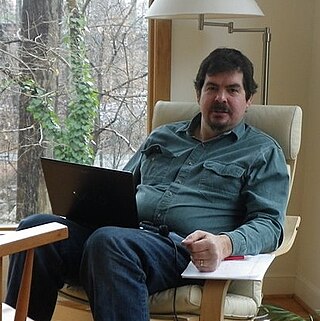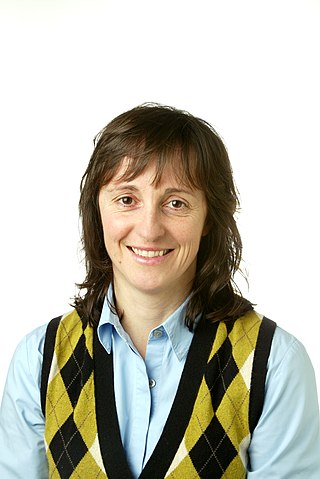Experimental economics is the application of experimental methods to study economic questions. Data collected in experiments are used to estimate effect size, test the validity of economic theories, and illuminate market mechanisms. Economic experiments usually use cash to motivate subjects, in order to mimic real-world incentives. Experiments are used to help understand how and why markets and other exchange systems function as they do. Experimental economics have also expanded to understand institutions and the law.
Computational economics is an interdisciplinary research discipline that combines methods in computational science and economics to solve complex economic problems. This subject encompasses computational modeling of economic systems. Some of these areas are unique, while others established areas of economics by allowing robust data analytics and solutions of problems that would be arduous to research without computers and associated numerical methods.

John Brian Taylor is the Mary and Robert Raymond Professor of Economics at Stanford University, and the George P. Shultz Senior Fellow in Economics at Stanford University's Hoover Institution.

Hans-Werner Sinn is a German economist who served as President of the Ifo Institute for Economic Research from 1999 to 2016. He currently serves on the German economy ministry’s advisory council. He is Professor Emeritus of Economics and Public Finance at the University of Munich.

The Journal of Accounting and Economics is a peer-reviewed academic journal focusing on the fields of accounting and economics. The editors-in-chief are J. Core, E. deHaan, and W. R. Guay.
Complexity economics is the application of complexity science to the problems of economics. It relaxes several common assumptions in economics, including general equilibrium theory. While it does not reject the existence of an equilibrium, it sees such equilibria as "a special case of nonequilibrium", and as an emergent property resulting from complex interactions between economic agents. The complexity science approach has also been applied to computational economics.
Journal ranking is widely used in academic circles in the evaluation of an academic journal's impact and quality. Journal rankings are intended to reflect the place of a journal within its field, the relative difficulty of being published in that journal, and the prestige associated with it. They have been introduced as official research evaluation tools in several countries.
Agent-based computational economics (ACE) is the area of computational economics that studies economic processes, including whole economies, as dynamic systems of interacting agents. As such, it falls in the paradigm of complex adaptive systems. In corresponding agent-based models, the "agents" are "computational objects modeled as interacting according to rules" over space and time, not real people. The rules are formulated to model behavior and social interactions based on incentives and information. Such rules could also be the result of optimization, realized through use of AI methods.
Mathematical economics is the application of mathematical methods to represent theories and analyze problems in economics. Often, these applied methods are beyond simple geometry, and may include differential and integral calculus, difference and differential equations, matrix algebra, mathematical programming, or other computational methods. Proponents of this approach claim that it allows the formulation of theoretical relationships with rigor, generality, and simplicity.

The Journal of Development Economics is a bimonthly peer-reviewed academic journal published by Elsevier. It was established in 1974 and is considered the top field journal in development economics.
In economic theory and econometrics, the term heterogeneity refers to differences across the units being studied. For example, a macroeconomic model in which consumers are assumed to differ from one another is said to have heterogeneous agents.
Christiaan Heij is a Dutch mathematician, an assistant professor in statistics and econometrics at the Econometric Institute at the Erasmus University Rotterdam. He is known for his work in the field of mathematical systems theory, and econometrics.
The University Ranking by Academic Performance (URAP) is a university ranking developed by the Informatics Institute of Middle East Technical University. Since 2010, it has been publishing annual national and global college and university rankings for top 2000 institutions. The scientometrics measurement of URAP is based on data obtained from the Institute for Scientific Information via Web of Science and inCites. For global rankings, URAP employs indicators of research performance including the number of articles, citation, total documents, article impact total, citation impact total, and international collaboration. In addition to global rankings, URAP publishes regional rankings for universities in Turkey using additional indicators such as the number of students and faculty members obtained from Center of Measuring, Selection and Placement ÖSYM.

John Philip Rust is an American economist and econometrician. John Rust received his PhD from MIT in 1983 and taught at the University of Wisconsin, Yale University and University of Maryland before joining Georgetown University in 2012. John Rust was awarded the Frisch Medal in 1992 and became a fellow of the Econometric Society in 1993.

Willi Semmler is a German born American economist who currently teaches at The New School in New York.
Felix Kübler is a German economist who currently works as Professor of Financial Economics at the University of Zurich. His research interests include computational economics, general equilibrium theory and portfolio choice. In 2012, he was awarded the Gossen Prize in recognition of his contributions to economic research.
Elyès Jouini is a French Tunisian economist and Distinguished Professor of Economics at the University of Paris Dauphine. His research is mainly in the area of financial economics, in particular transaction costs, heterogeneous beliefs, aggregation, long-term risk and the maturity structure of interest rates. After early research on general equilibrium theory, he got interested in modeling financial markets by including both economic and financial dimensions as well as dimensions pertaining to psychology or sociology. His research has been acknowledged by the Best Young French Economist Award in 2005 (together with Esther Duflo, 2008's Best Paper Award in Finance by Europlace Institute of Finance, and the 2009 Finance and Sustainability European Research Award, and was named Chevalier de la Legion d'honneur in 2010.

Luisa Lambertini is an Italian economist specializing in monetary and fiscal policies. She is a professor of economics at EPFL, where she holds the Chair of International Finance at the College of Management of Technology.
Lawrence M. Benveniste is an American mathematician, financial strategist, and academic. He is the Asa Griggs Candler Professor of Finance at the Goizueta Business School at Emory University.







